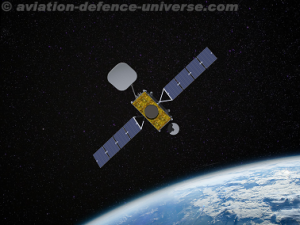- The world-class satellite positioning service will be delivered on one of Inmarsat’s three new I-8 satellites from 2027.
 Canberra. 25 May 2023. Every major industry across Australia and New Zealand, from transport and construction to resources and agriculture, will gain positioning and navigation benefits from the Southern Positioning Augmentation Network’s (SouthPAN) new satellite service.
Canberra. 25 May 2023. Every major industry across Australia and New Zealand, from transport and construction to resources and agriculture, will gain positioning and navigation benefits from the Southern Positioning Augmentation Network’s (SouthPAN) new satellite service.
With the signing of a contract with Inmarsat Australia for the new service on one of Inmarsat’s three new I-8 satellites, SouthPAN partners Geoscience Australia and Toitū te Whenua Land Information New Zealand are one step closer to world-class satellite positioning for the southern hemisphere.
SouthPAN provides accurate, reliable and instant positioning services across all of Australia and New Zealand’s land and maritime zones without the need for mobile phone or internet coverage. It will improve positioning accuracy to as little as 10 centimetres. Early Open Services have been available since September 2022.
Signals will begin broadcasting services from the Inmarsat-8 satellite which will cover the Asia Pacific region, commencing from 2027. The satellites will provide redundancy and resilience in SouthPAN to ensure continuous broadcast of signals, enabling the development and use of critical applications relying on its highly accurate positioning. An additional satellite service will also be procured.
These satellites will also be a critical part of a safety-of-life-certified SouthPAN for aviation and other applications, scheduled for 2028. These services will be accessed or used by end users engaged in operations where life could be at risk, like landing an aircraft.
Todd McDonell, President, Inmarsat Global Government, said “SouthPAN represents extraordinary potential for the region. It can save lives by enabling precision safety tracking, help farmers improve productivity through automated device tracking, or even support transport management systems of the future. We have a long history providing services for Governments in the moments that matter most, and we are delighted that our Inmarsat-8 satellites will continue that legacy well into the 2040’s.”



































































































































